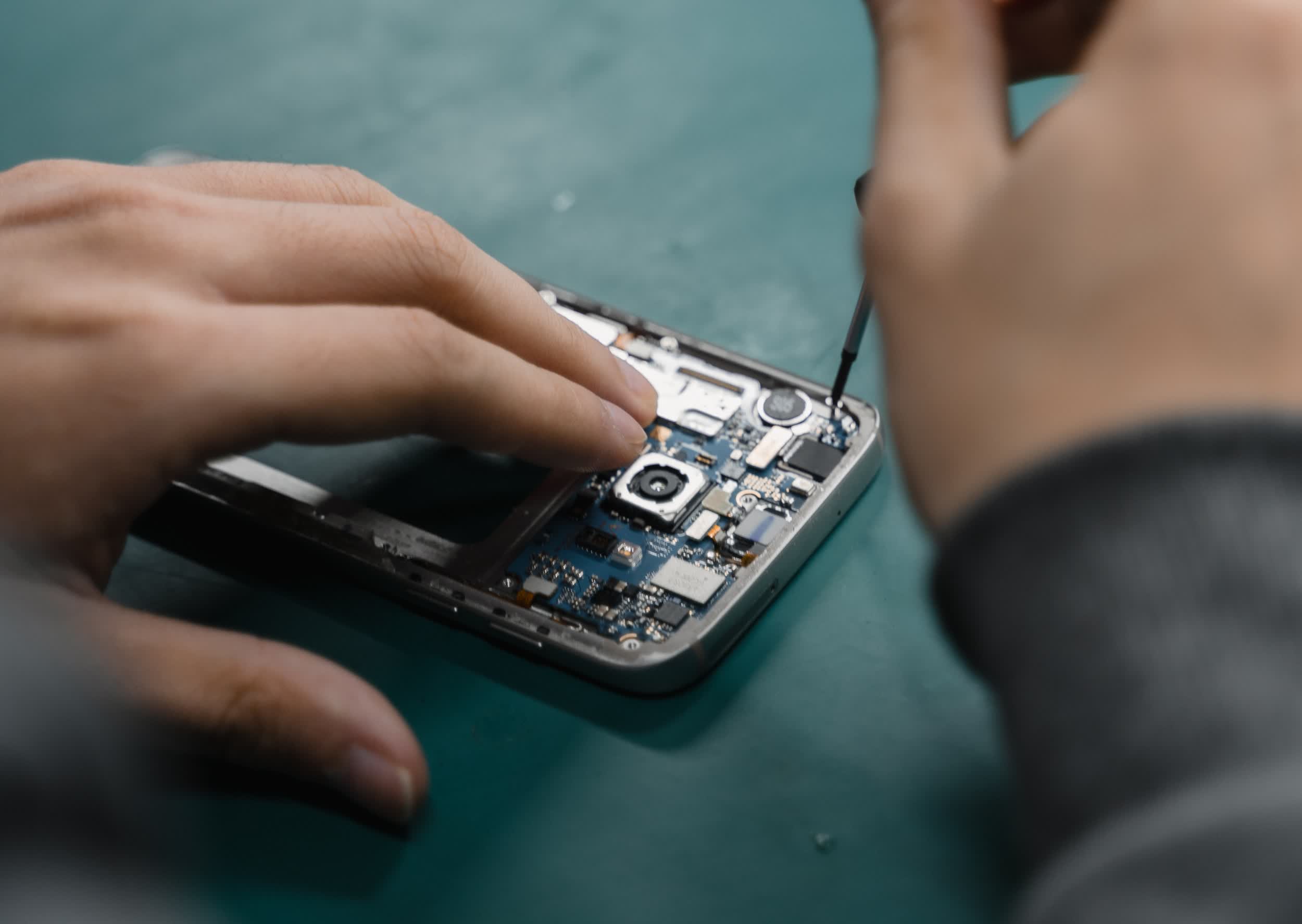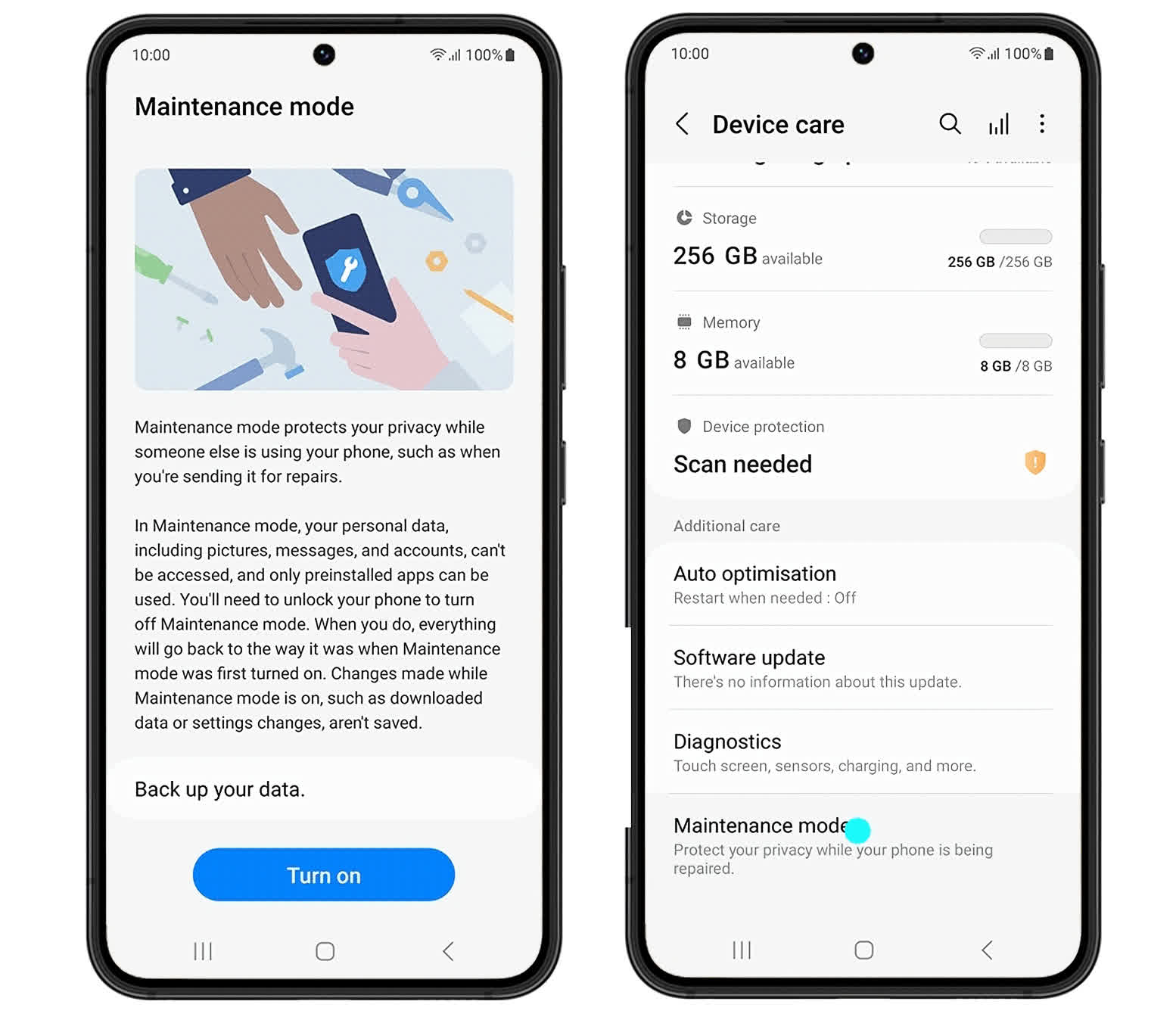This mode is essentially nonsense if there is no end-to-end encryption with a key flashed into a special chip (it should not be possible to pull it out from there, I.e. you just need to make regular backups to your local drives without encryption, but the phone is always encrypted with a hardware key generated in it).
The smartphone may break so that you cannot get into the menu, but you still have to give it to the service man if you want a warranty repair or for a fee. The data should not be accessible to anyone other than the owner and everything on the flash should be stored in a crypto container. Something like in TrueCrypt (and the like) on a PC.
Even if the phone hardware fails (like as SSD/HDD), does not turn on - you do not need to worry about private data - they will not be available to anyone, even if the service engineer pulls out the flash image (or SSD/HDD read on special hardware service platform) through an external reader, bypassing the smartphone system (directly from the board).
In the place of ordinary people, I would be much more worried about solid (and intentional on the part of manufacturers) holes in network access from a smartphone for third-party software and OS components, drivers. On a PC, you can install a full-fledged firewall that, if you wish, completely blocks all network activity (if of course, you trust the firewall manufacturer or there are source codes, although of course code verification is a non-trivial level available to 0.0001% of the world's population at most). You can block access to anything on the PC. But on a smartphone, which is much more dangerous in terms of privacy (where even cameras and microphones do not have hardware independent shutdown if necessary), manufacturers intentionally left a hole in the form of uncontrolled access to the network from the applications and OS via wi-fi and partially via cellular internet. A sane person who thoroughly understands the level of risks will NEVER conduct any financial transactions on modern smartphones and store dangerous private data on them a priori. But these are sane people, and how many of them are there on the planet? 0.5-1%?
It is through such network holes from smartphones that data is collected from smartphones through installed applications (and some, according to their declared functionality, for example, a calculator, etc., do not even need access to the network, but they climb there anyway) and manufacturers through the OS and their system applications (which obviously do not even allow to be intentionally deleted, without tricks).
As a result, the creation of a secure smartphone firmware, from the point of view of privacy and financial transactions, turns out, in practice, into a non-trivial task, almost unsolvable for ordinary people.
Let me remind everyone that in the past there was a small company that created secure firmware for modified smartphones. Company did not conduct essentially any criminal activity within the framework of the law, but the US authorities nailed it because 90% of it clients were drug dealers and corrupts. It's like accusing a knife company that it's the knives that kill people, not the person with the knife in their hand. Let's ban all kitchen knives, which commit the bulk of domestic murder on the planet? Well, almost no one condemned the US authorities for this. Because it was profitable for them to suppress an independent company capable of making smartphones unopenable for special services. About the same thing happened to Zimermann a long time ago and his PGP. In the end, he apparently agreed with the authorities so that the persecution would not continue.
But now we are not talking about the level of accessibility for special goverment services (although even they do not have the right to get into private correspondence and data, which is ensured by strong encryption - and no court will help them, except as a direct violation of the law, because any Constitution provides the right not testify against yourself, I.e. a judge a priori cannot force you to hand over an access key without violating the constitution of any country, by the way, American judges have already violated the law several times by forcing the accused to hand over the keys, which they had no right to do under the Constitution, thereby violating the presumption of innocence in criminal law), but about the household level, just to hide your private data from unscrupulous people in service companies or if you throw your smartphone in the trash, if it burned down and there is no point in restoring it, and the data on the flash potentially remained.
This is ensured only by full encryption of all data at the hardware level, so that even through the from programmator and direct reading of the dump from flash chips, it was not possible to read private data and restore them without a private access key from owner. Namely, this is what is not provided in most smartphones.
Those. in reality, Samsung (like all other manufacturers, including Apple) only creates the appearance of real privacy, without providing it at an unrevealed hardware level (excluding only special services, but not private persons and business).
.

